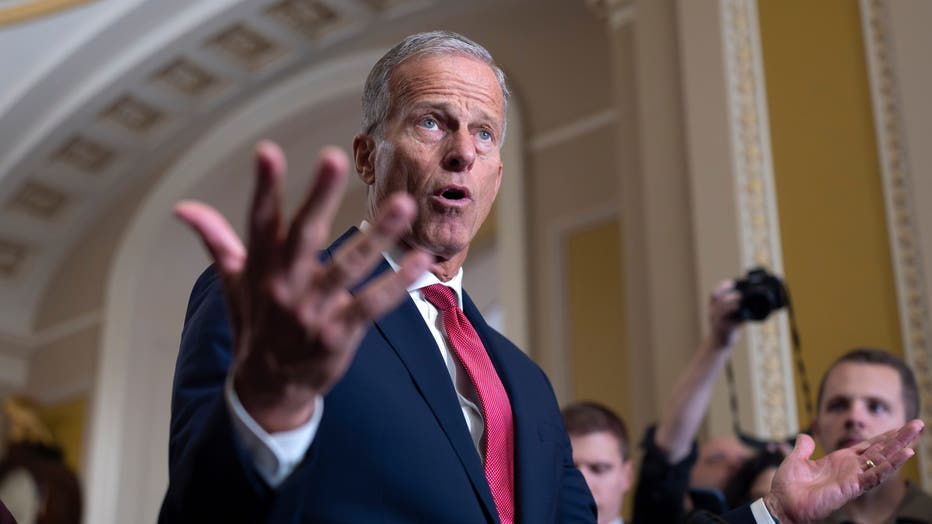WASHINGTON – At 12 a.m. Wednesday morning, the federal government shut down after Congress failed to pass a continuing resolution to keep agencies operating.
Republicans have introduced a stopgap bill that would fund the government through Nov. 21, but Democrats have so far blocked it, as the bill does not include what they believe to be adequate health care funding.
Democrats want to negotiate with Republicans to extend the Affordable Care Act (ACA) subsidies that are set to expire at the end of the year and reverse cuts that were recently implemented to Medicaid funding as part of President Donald Trump’s “Big Beautiful Bill.”
About 750,000 federal employees could be furloughed each day of the shutdown, with their total compensation costing roughly $400 million each day, according to the Congressional Budget Office.
While it’s true that federal agencies have some discretion in deciding which services to suspend and which to maintain, depending on how long the shutdown lasts, it could have a negative impact on the economy as a whole.
So, how long could this shutdown last?
The soonest things could be resolved
Dig deeper:
It’s rare that federal government shutdowns go on for multiple weeks, but it does happen. For example, the country saw a monthlong government shutdown, the longest in U.S. history, during Trump’s first term.
This shutdown is expected to last at least three days, as the Senate isn’t likely to hold any votes until at least Oct. 3. This is because lawmakers are observing the Jewish holiday of Yom Kippur.
As of publication, however, Democrats and Republicans appear to be stuck in a blame game of sorts, so the exact timeline of the shutdown is hard to pinpoint.
What they’re saying:
“If Republicans want Democratic participation, then they have to negotiate,” Rep. Alexandria Ocasio-Cortez (D-N.Y.) told The Hill. “This is a core principle of why people elected us to office.”
“We’re not going to discuss and negotiate it while they’re holding the hostage of the federal government,” Senate Majority Leader John Thune (R-S.D.) said Tuesday morning on CNBC. “Release the hostage, and we will have that conversation about how we can keep these exchanges up and going.”

Senate Majority Leader John Thune, R-S.D., gestures while speaking with reporters as the government lurches toward a shutdown at the Capitol in Washington, Tuesday, Sept. 30, 2025. (AP Photo/J. Scott Applewhite)
Thune added on the Senate floor that negotiations over the ACA subsidies would only occur after the federal government reopens, according to the Hill.
“Anything that’s going to be done is going to have to be done with significant reforms,” he said.
But Senate Minority Leader Chuck Schumer isn’t buying that.
“We think that when they say later, they mean never,” he said on the Senate floor.
While it’s true that a dozen more moderate Republicans have signed on to support a bill from Rep. Jen Kiggans (R-Va.) that would extend the subsidies for one year, more conservative Republicans appear to be vehemently against doing so.
House Speaker Mike Johnson said last month that there was “zero chance” he would consider supporting it, for example.
Unclear timeline
Big picture view:
Senate Democrats voted again on Wednesday to block the Republican bill that would have funded the government through the third week of November.
The bill failed in a 55-45 vote—the same as Tuesday’s vote—and 60 votes are needed to advance it.
Three Democratic caucus members voted with Republicans on the bill: Sen. Catherine Cortez Masto (Nev.), Sen. Angus King (Maine), an independent, and Sen. John Fetterman (Pa.). Republican Sen. Rand Paul (Ky.) voted against the bill.
Since the House won’t convene again until Monday, the only real option the Senate has at this point in time is to pass the bill that’s already failed twice. Thune said Wednesday that he plans to keep the upper chamber in session over this weekend to vote again. He says this is the only scenario in which President Trump signs on.
“As of this morning, critical federal employees including members of the military, Border Patrol agents and air traffic controllers are working without pay,” Thune said on the Senate floor. “Democrats are well aware of the damage of a government shutdown.”
The Source: Information above was sourced from The Hill, USA Today, the Congressional Budget Office, POLITICO, the Jewish Telegraphic Agency, Congress and Senate voting records and previous FOX 5 DC reporting.


